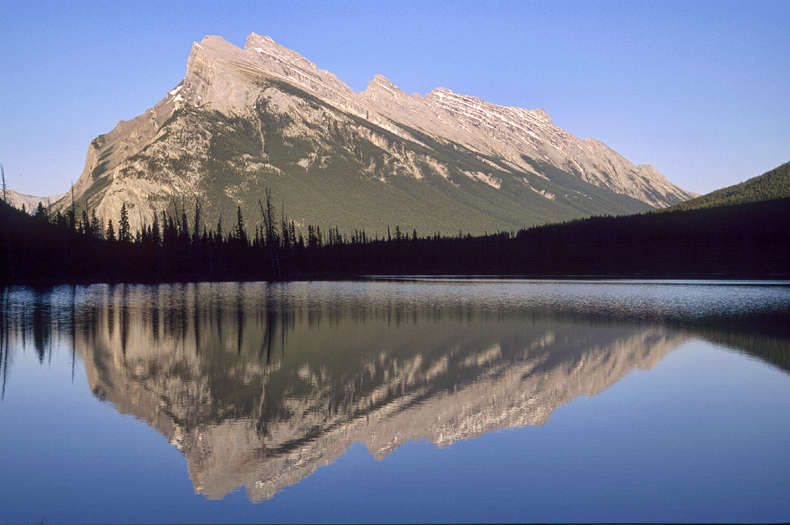
How
life in the mountains is living in danger
From too many people, too many machines
John Denver
Today's visitor to the Canadian Rockies is on a vision quest of sorts, like our native brethren of the past who lived and worshipped in these hills. These mountains help restore the beleaguered souls of a world overwhelmed by non-stop commotion, crowds, and bad news. To hike the shores of Lake Louise or scale the granite heights of Mt. Robson is to feel the peace and hear the quiet of a different world, more in tune with our past.
On my last evening in Canada I hike the shore and stare at the last light of a summer sunset on Mt. Rundle, "Mona Lisa of the Mountains," as she reflects in Vermillion Lake below. Nearby a beaver stirs from its lodge and coyotes begin their solitary hunt. The world seems right again with calls of the wild- bull elk bugling in a high meadow, the plaintive call of a loon on the lake, and even the faraway howl of a lone wolf. These sights and sounds yet resonate with the primeval ocean blood that swells our veins.
Just a hop, skip, and jump away is Banff, the largest "park" town in the world. Looming over the town is the baroque Banff Springs Hotel, which helped transform a railroad whistle-stop into a world-class resort. A short distance from the hotel is Banff Avenue which on summer evenings becomes positively citified, with flashing neon, happy hour, and karaoke having replaced the campfire singalongs of yesterday. Critics of this scene say the business community would turn these hills into a Canadian version of Gatlinburg, in the Great Smoky Mountains of Tennessee, and are determined that this will not happen. With 30,000 visitors every hot July day it may be too late.